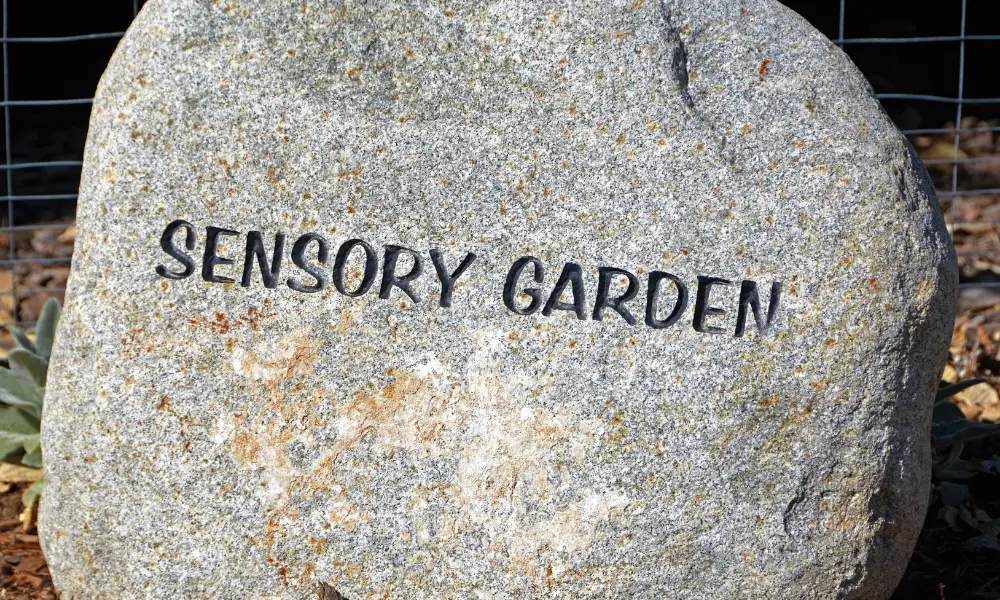Nature and wellbeing are greatly linked, and if you run a home care service, care home or day centre, you may want to harness the benefits of nature on mental health for the people in your care.
Whether it’s starting a care home garden, running a bird-watching group, or just having the occasional picnic outside, incorporating nature into your provision can enhance your clients’ quality of life.
In this article, we’ll look at how nature and health are connected, how you can bring nature into your care routines, and how to handle some of the challenges.

Table of Contents
How are nature and wellbeing linked?
The health benefits of spending time in nature are huge. Studies show that older people who spend time outside can see physical and mental health benefits.
Benefits of nature on mental health
Spending time in nature can do wonders for a person’s mental health. If someone in care has a diagnosed mental health condition, such as depression, anxiety or seasonal affective disorder, spending time outside may help with their symptoms.
However, even for people without a diagnosed mental health condition, reported effects of time in nature include:
- Improved mood and cognitive function
- Reduced stress
- Reduced anger
- Improved confidence and self-esteem
- Increased relaxation
- Improved creativity and problem-solving skills
In addition, those spending time in nature are also likely to be spending time with other people – whether that’s other people in care, visitors, or members of the staff team. This can help to decrease feelings of isolation and reduce loneliness.
Benefits of nature on physical health
Nature is also important for your clients’ physical health. If they can walk or physically help with gardening, they may benefit from increased fitness. But even if that’s not possible for them, spending time in nature may help them with:
- Improved sleep patterns
- Lowered heart rate
- Lowered blood pressure
- Improved vitamin D levels
If the people you care for are able to take part in gardening, this can help with their mobility and motor skills.

How can we encourage residents and people in care to spend time in nature?
How you can incorporate nature into your care service will depend on a few factors:
Your service users
Are your clients young people with learning disabilities, people with complex health conditions, autistic people, older people with physical disabilities, or people with a dementia diagnosis? You’ll need to take their conditions and any limitations into account.
Your environment
Is your care service based in a rural area with a lot of land, or an urban area with only a small park – or somewhere in between? How you incorporate nature will depend on the space you have available.
Personal interests
Do any of your clients or staff members have specialised knowledge about gardening or nature that they would like to share? Alternatively, do you have the budget to hire someone to put together sensory garden ideas for elderly people, or a gardener to maintain your care home garden?
Depending on your circumstances, there are a few activities that you could try to get your clients involved in nature.
Start a care home garden group
You may have residents who enjoy gardening. Many people miss aspects of their previous life when moving to residential care – and gardening is often one of those.
Some of your residents may have lived in their previous homes for many years. They may have built up beautiful gardens and have significant gardening knowledge. Even residents who have memory issues or learning disabilities may have strong preferences about what they would like to see in their care home garden.
A care home garden group could take several forms, including:
- A group that takes charge of the planning, planting and maintenance of the garden, with minimal or no staff support
- A group that plans and helps maintain the garden, with support from the staff team
- A group that plans the garden, which is then planted and maintained by the staff team
Your residents may have goals for their garden, such as wanting to grow vegetables to eat or flowers to attract bees. What’s important is finding the balance that works for your clients and staff team.
Create sensory gardens for elderly people
Sensory gardens are gardens designed to appeal to different senses. Rather than just looking good or being functional, they also focus on scent, touch and sound.
Sensory gardens for elderly people should be accessible. Depending on your clients’ needs, this may include raised beds and plenty of seating areas, no steps, and wide walkways. Be aware of different eye heights and trip hazards.
People in care with sight loss may like to smell and touch plants. Choose herbs and other plants that they can touch safely – nothing that is spiky or toxic. You could also include sculptures that can be touched.
Windchimes, the sound of running water, and the wind rustling grasses are all relaxing sounds for people to enjoy.
Remember that people in care may want to use the garden year-round, so consider whether the plants you’ve chosen are likely to last all year.

Encourage visitors to spend time outside
If your care home or your client’s home has outside space, you could set up an area for visitors. Lots of care services began doing this during the pandemic, but there’s no reason why it shouldn’t continue. It can encourage people in care to spend time outside when their family or friends visit.
If your clients regularly have visits from small children, spending time outside can be a great experience for them too. Rather than spending the visit in a small bedroom or day room, children may appreciate having space to run and play outside.
Depending on your organisation’s policies or your clients’ preferences, you may even be able to accommodate visiting pets outside.
Arrange picnics or outdoor meals
You could arrange for people in care to have some meals outside in good weather. Depending on their mobility, these could be traditional picnics or meals seated at tables outside.
Picnics can also be a good reminiscence activity for people living with dementia, who might like to talk about their memories of picnics in the past.
Plan nature walks
You’re not limited to the grounds of the facility or home. People in care may appreciate nature walks around the local area, or even further afield.

The challenges of spending time in nature
Although there are many benefits of nature on mental health, it’s not always easy to get the people you care for outside. Some challenges that you encounter may include:
- Resistance to changes in routine. Some people may not react well to changes in their routine. Encouraging them to have meals outside or see visitors in a different environment may be uncomfortable for them. Rather than changing something that they’re currently comfortable with, consider adding in new activities for them to try.
- Health challenges. You may have clients who find it hard to get outside because of mobility concerns or ill-health. Some people in care may have allergies or other health issues that prevent spending too much time outside. You could encourage these clients to try some indoor nature-related activities.
- Staffing and rota issues. Trying to plan new activities can be difficult if you already feel that you don’t have enough staff. Using home care software to manage your rotas and streamline reporting may help free up some time to allow you and your team to support your customers experience nature. In addition, you could try and recruit volunteers to help with gardening, classes or nature walks.
- Future planning. If you only have one or two staff members or people in care who are spearheading the project, do you have a succession plan for what would happen if they moved on? Consider whether a gardening group would help ensure that your sensory garden project last longer.
- Space issues. While it’s lovely to think that every home, residential facility or day service could have a sensory garden, we all know that isn’t the reality. Many homes and care facilities don’t have a lot of outdoor space, especially if they’re based in an urban centre or share land with another organisation. Instead, you could focus on indoor alternatives, or day trips to other areas.
- Coping with adverse weather. Unfortunately, in the UK, we all know that we can’t guarantee sunny weather! Consider having some indoor activities available for times when the weather isn’t suitable for outdoor gardening.
Indoor alternatives to a care home garden
As we’ve seen, there are several reasons why the people you care for may not be able to spend time outside in nature. Whether it’s down to space issues or not having enough staff on your care roster, you may need indoor activities for your customers.
Open curtains and windows
It’s a simple tip, but it can help. Even if you don’t have the resources to help your clients go outside regularly, carers can easily open curtains and windows in most areas – where it’s safe and appropriate, of course.
Open windows can allow clients to see nature outside the home or facility, as well as hearing birdsong and other noises from outside.
Start a birdwatching group
Even if you don’t have much outdoor space, you may already get some birds near your care facility or your clients’ homes. You can attract more by regularly providing food.
People in care may like to watch them individually or start a more organised group to discuss the birds they see.
Some people may enjoy using binoculars to see them from a distance, whereas others might prefer to put bird feeders by their windows to observe them more closely.

Try flower arranging or other nature-themed activities
If your activity team are looking for a new activity, why not consider one that incorporates nature? Flower arranging, painting lessons, and other nature-themed craft sessions can help people in care with relaxation, creativity and socialisation.
Add indoor plants to your decor
You can surround your clients with nature while they’re still inside. Plants in corridors and communal areas can look pretty and also provide some of the benefits of nature without needing to leave the facility.
However, you should consider allergies and the risk of people in care or visitors ingesting leaves or petals.
Final words on nature and wellbeing
Whether it’s through a care home garden group, being in a sensory garden, or even attending a group flower arranging session, spending time around nature can improve your clients’ wellbeing.





